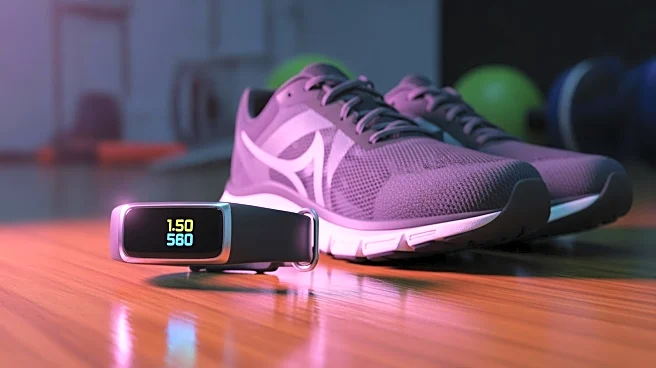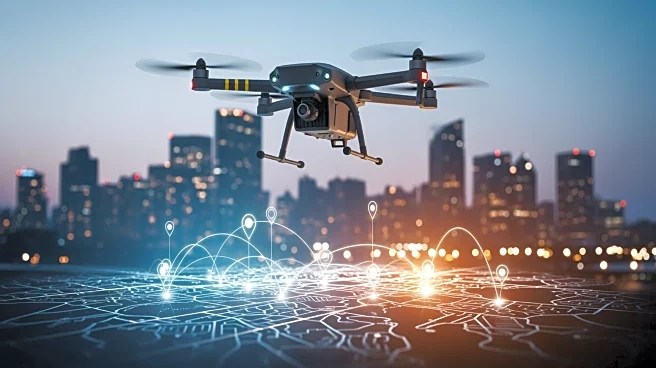What's Happening?
A comprehensive evaluation of fitness trackers was conducted during the New York City Marathon to determine their effectiveness for marathon training. The study involved testing seven different models, including the Apple Watch Ultra 3, Garmin Forerunner
570, Whoop MG, Pixel Watch 4, Suunto Run, Oura Ring 4, and Fitbit Charge 6. The evaluation focused on various aspects such as comfort, workout metrics, recovery data, and battery life. The Whoop MG was noted for its recovery metrics, while the Garmin Forerunner 570 excelled in workout metrics. The Apple Watch Ultra 3 was praised for its robust features and battery life, although it is the most expensive option. The Suunto Run was highlighted for its affordability and reliable data, despite lacking some smartwatch features.
Why It's Important?
The evaluation of fitness trackers is significant for athletes and marathon runners seeking reliable tools to enhance their training and performance. Each tracker offers unique benefits, such as detailed recovery insights or advanced workout metrics, which can aid in optimizing training regimens. The findings provide valuable information for consumers looking to invest in fitness technology, helping them make informed decisions based on their specific needs and budget. The insights also highlight the importance of choosing the right device to balance comfort, data accuracy, and functionality, which can ultimately impact training outcomes and athletic performance.
What's Next?
The evaluation suggests that athletes should consider their specific training needs and budget when selecting a fitness tracker. For those prioritizing recovery data, the Whoop MG is recommended, while the Garmin Forerunner 570 is ideal for detailed workout metrics. The Apple Watch Ultra 3 is suitable for those seeking a comprehensive smartwatch experience, despite its higher cost. As technology continues to advance, future iterations of these devices may offer improved features and integration, providing even more tailored solutions for athletes. Consumers are encouraged to stay informed about new developments in fitness technology to enhance their training and performance.
Beyond the Headlines
The evaluation of fitness trackers also touches on broader themes such as the integration of technology in sports and the growing demand for personalized health and fitness solutions. As wearable technology becomes more sophisticated, it raises questions about data privacy and the ethical use of personal health information. Additionally, the reliance on technology for training and recovery underscores the shift towards data-driven approaches in sports, which may influence coaching strategies and athlete development. These considerations highlight the need for ongoing dialogue about the role of technology in sports and its impact on athletes' health and performance.















